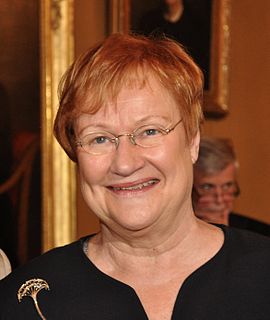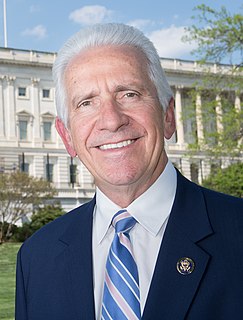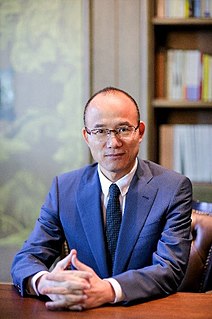A Quote by Li Keqiang
China is committed to work with other countries for a solution to the global challenge of energy and resources.
Related Quotes
I am against portraying China as the demon of the global community. China has grasped more quickly than other countries what globalization means and what it demands. The country has learned how to use other people's innovations for itself. India, incidentally, is not far behind China in this respect. Both are not nations in the European sense, but rather cultural communities with enormous markets. The challenge of the future is to work out how to deal with that.
China's accumulation of reserves is a result of the IMF's mismanagement of the Asian financial crisis a decade or so ago. If countries know they can't rely on the IMF to help them, their best defense is their own reserve cushion. In a time of spreading global recession, too much emphasis on savings in surplus countries like China can impede prospects for global growth.
Historically, international law lent a measure of legality to the colonial system, and allowed the West to set the rules for participation as a sovereign state on a global level. It also protected the interests of foreign investment in countries of the global South even when these were exploitative, and deprived countries of the benefits of resources situated within their territories.
The Hyperloop One Global Challenge started as a call to action for innovators, engineers, trailblazers, and dreamers around the world who shared our vision of creating a new mode of transportation. The Global Challenge became a movement of thousands of people from more than 100 countries over six continents.
China had never had to deal in a world of countries of approximately equal strength, and so to adjust to such a world, is in itself a profound challenge to China, which now has fourteen countries on its borders, some of which are small, but can project their nationality into China, some of which are large, and historically significant, so that any attempt by Chinese to dominate the world, would involve in a disastrous for the peace of the world.
Studying in countries like China isn't only about your prospects in the global marketplace. It's not just about whether you can compete with your peers in other countries to make America stronger. It's also about whether you can come together and work together with them to make our world stronger. It's about the friendships you make, the bonds of trust you establish and the image of America that you project to the rest of the world.
































